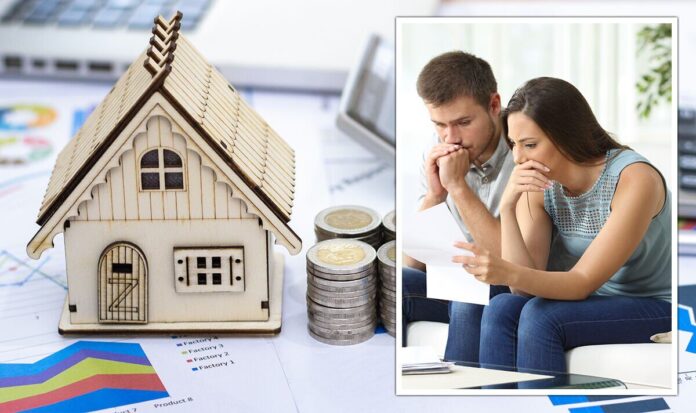Could house prices be set to crash? SUBSCRIBE Invalid email We use your sign-up to provide content in ways you’ve consented to and to improve our understanding of you. This may include adverts from us and 3rd parties based on our understanding. You can unsubscribe at any time. More info Just days ago Simon French, chief economist at Panmure, predicted that average house prices will fall 14 percent over the next three years, which is a 29 percent slump in real terms. ‘This would take the inflation-adjusted average price for UK houses back to a level last seen in the first quarter of 2013 before the Help to Buy programme was instigated,’ he said. ‘The UK housing market faces up to its biggest challenge since the global financial crisis and arguably, given that the huge monetary easing that took place during that period is unlikely to be repeated, the coming years look more similar to the challenges of the early 1990s.’ But there’s another question which many are quietly beginning to ask as warnings like this grow. And it’s this… Is the risk of a property crash really such a bad thing? READ MORE: ‘Best’ tip to remove tap limescale without vinegar or baking soda Trending It’s a question we need to take really, really seriously. Around 14 million people in the UK currently own a home. They’re the lucky ones, even if spiralling gas and electricity prices and unpredictable mortgage rates mean a home can sometimes feel like a weight around your neck. But those who can’t afford to get on the ladder, or are unable to find a house due to the supply crisis we have right now, are quietly hoping for the worst. They might not say it, but they will be rooting for a full-scale economic meltdown that would push prices back down to affordable levels. Many of those hoping for this, point to what happened during Covid. They rightly point out how it led to an inflation in house prices that was not just unprecedented, but which created house prices that were simply unsustainable. Some areas of the UK saw a gravity-defying 12 percent leap in prices. DON’T MISS I tried the bed sheet hack to dry my laundry without a tumble dryer [EXCLUSIVE] Remove ‘stubborn’ brown stains from oven door with ‘miracle’ item [RESULTS] Sellers could see ‘downward pressure’ on house prices [COMMENT] The most affordable UK towns READ MORE What to do in your garden in November – ‘time to put away the mower’ Surely, many are saying, a drop back down to earth is a good thing? It will, after all, give younger buyers the chance to get a foot on the ladder and help those moving up the market. Alas: if only it were that simple. The reality is a drastic reduction in prices would not just spell disaster for the country, it would be a disaster for the very people who would welcome it. Here’s why. For prices to fall, bigger things need to happen in the economy first. We need to see interest rates rising to unaffordable levels, mortgage lending drying up and inflation rocketing. As things stand all three factors are in play meaning the risk of a crash is real… and growing. So what happens next? Well, the first thing we’ll notice is a slowdown in annual growth. I suspect this will happen quickly and that the annual gains of 12 percent or more will begin to turn to minus numbers come the New Year. Other things will start to happen as well. Firstly, supply will get even tighter. READ MORE: Property: How to save by renting out your home Looking for a new home, or just fancy a look? Add your postcode below or visit InYourArea READ MORE ‘Dramatic’ fall in house prices ‘far less likely’ with PM Rishi Sunak Why? Because homes are essential items, and many are sold voluntarily, meaning those that have to buy will do everything they can to do so. Those that don’t have to sell up simply won’t bother. This will reduce supply and help to insulate prices from a drop for a little longer. But here’s why house price crashes are so devastating to the wider economy. As lending rules toughen, businesses that rely on loans will see them become more expensive or withdrawn altogether. As customers begin to feel the pinch, unnecessary spending will stop. In scenes reminiscent of previous crashes, we’ll see restaurants and cafes hit hard. Thanks to slowing home sales, associated trades like carpet showrooms and kitchen companies will close. Our high streets, just recovering from lockdowns, will once again be filled with boarded-up and whitewashed windows. Unemployment will begin to climb as employees in these businesses find themselves without work. With no job, any hope of buying a property is gone.


